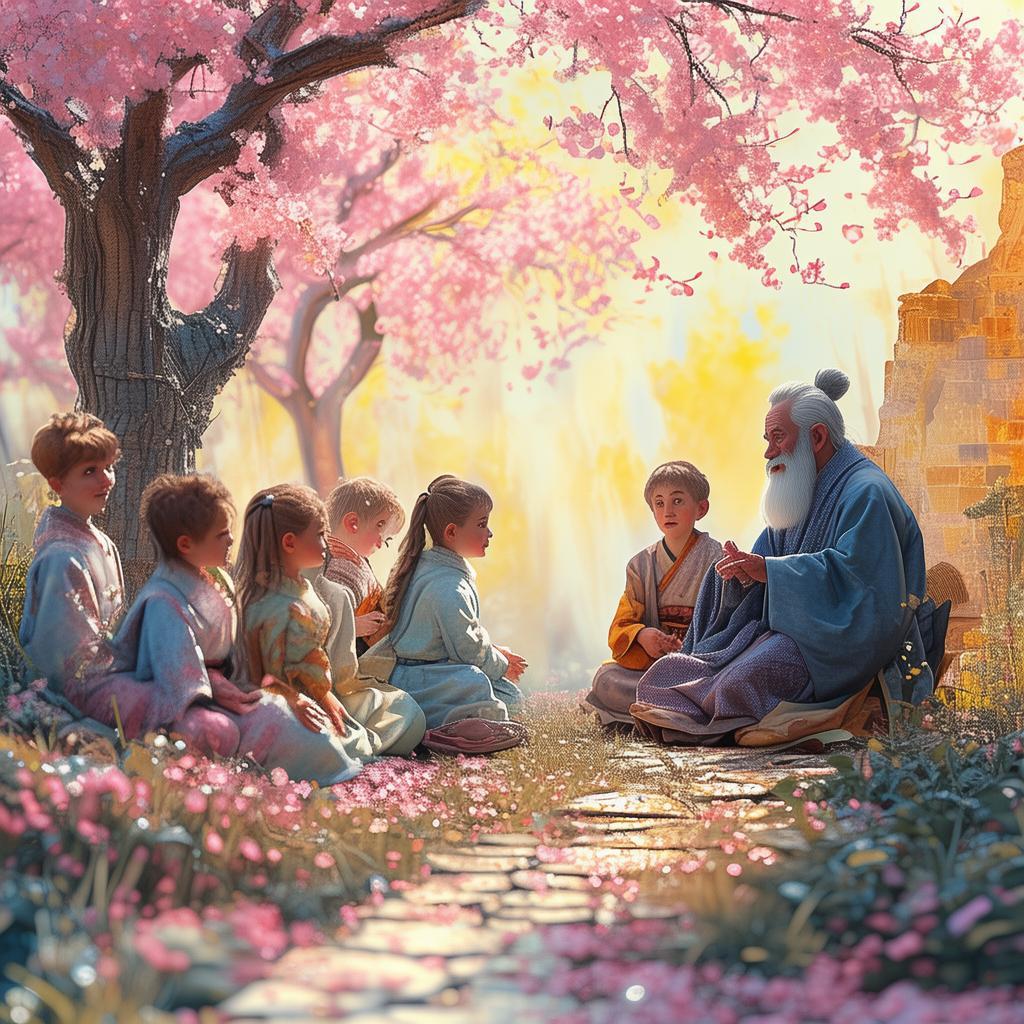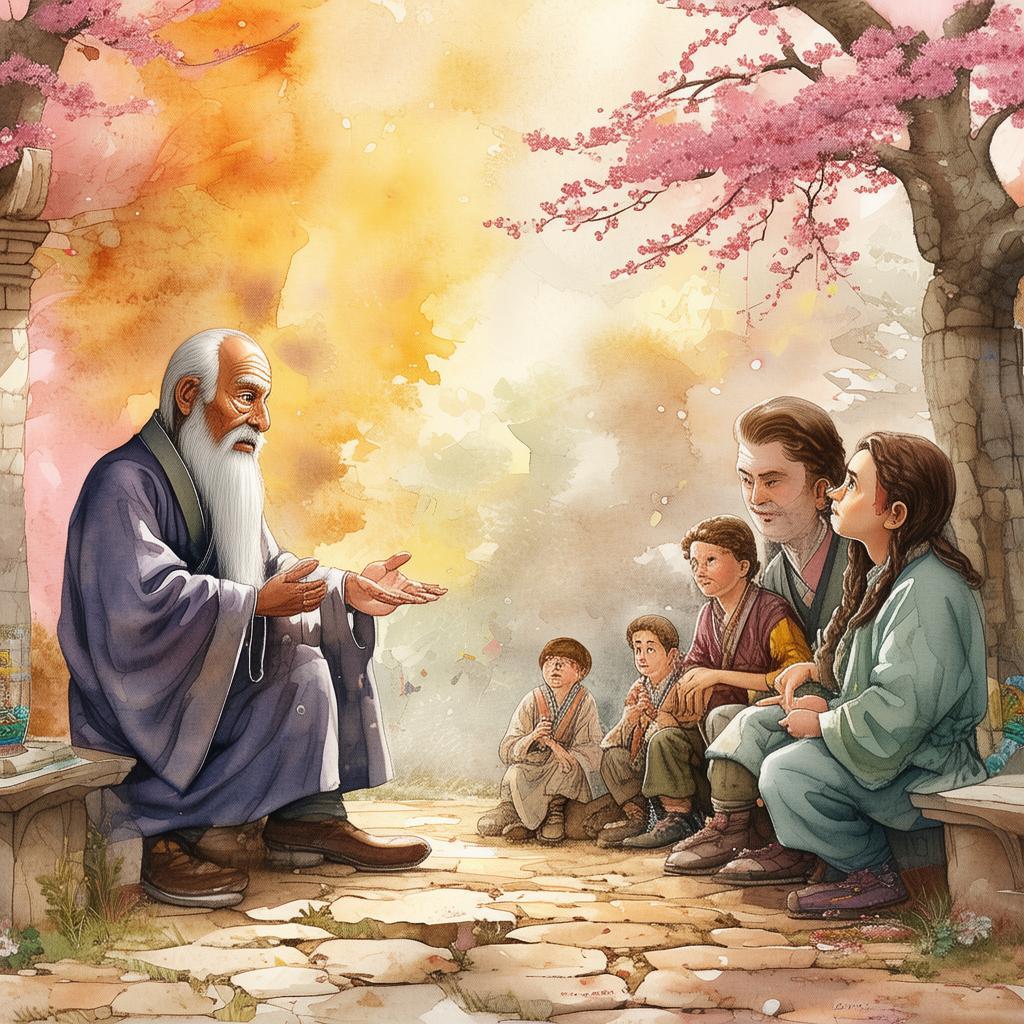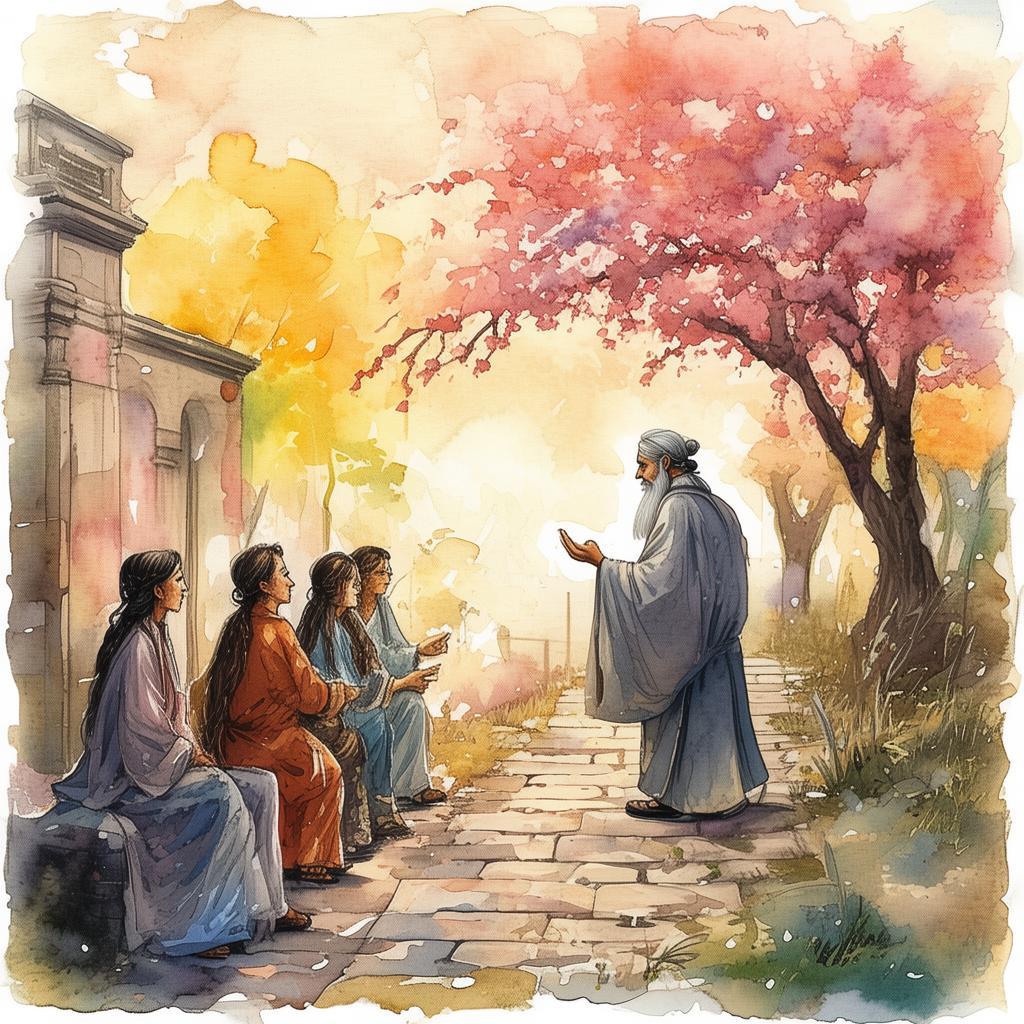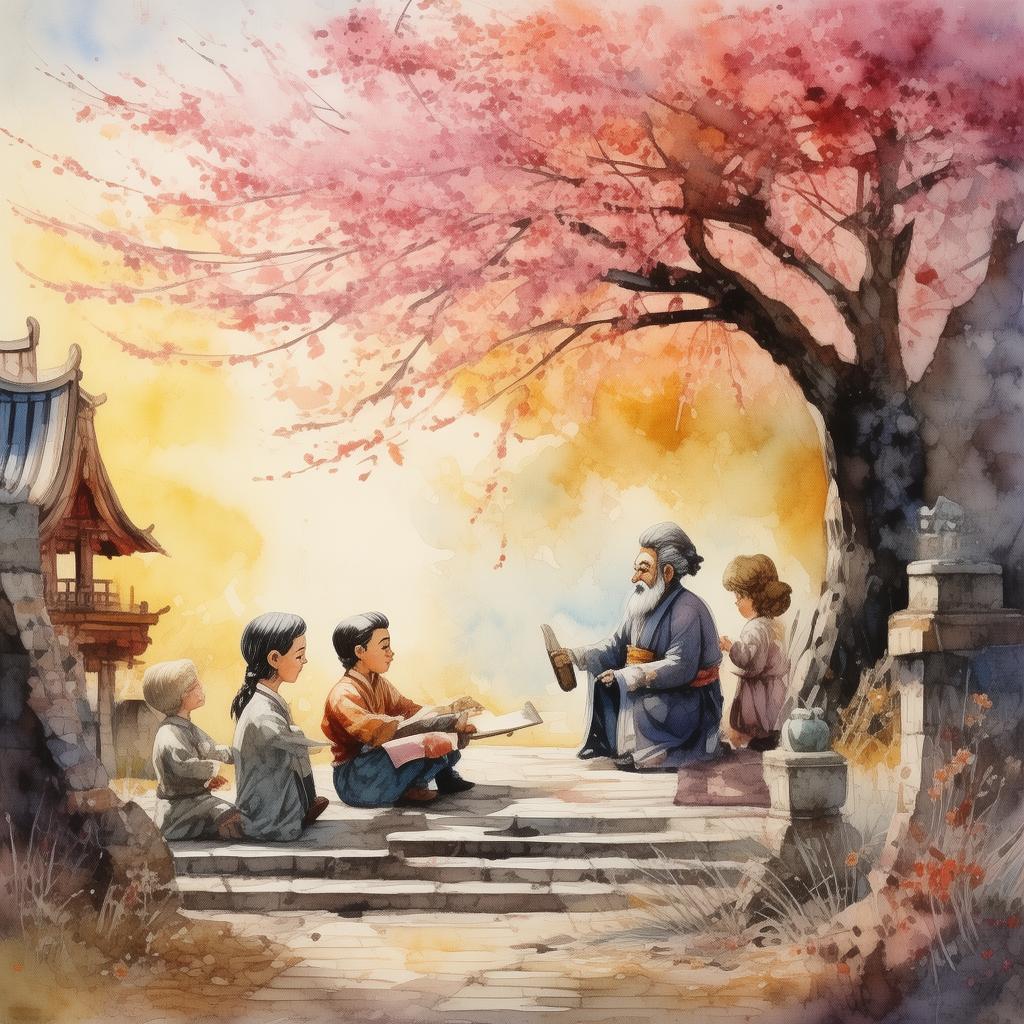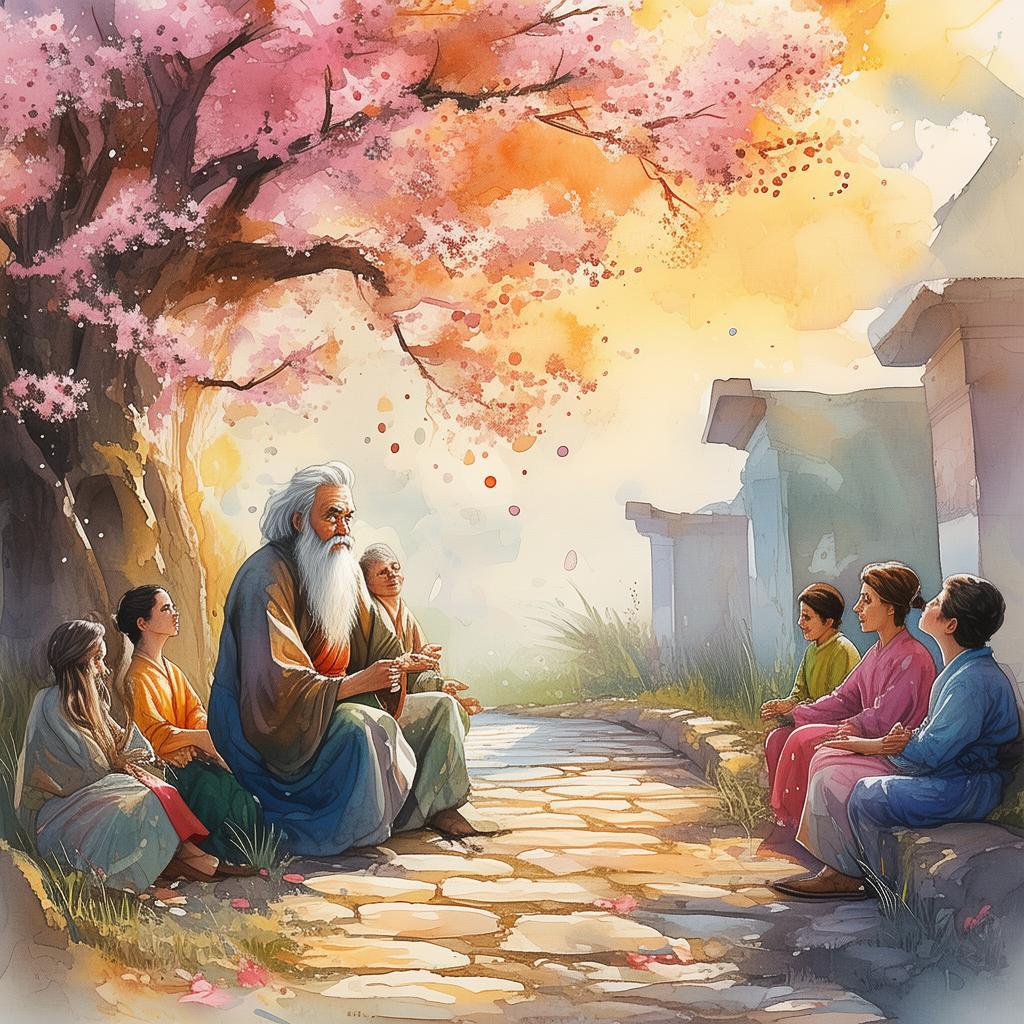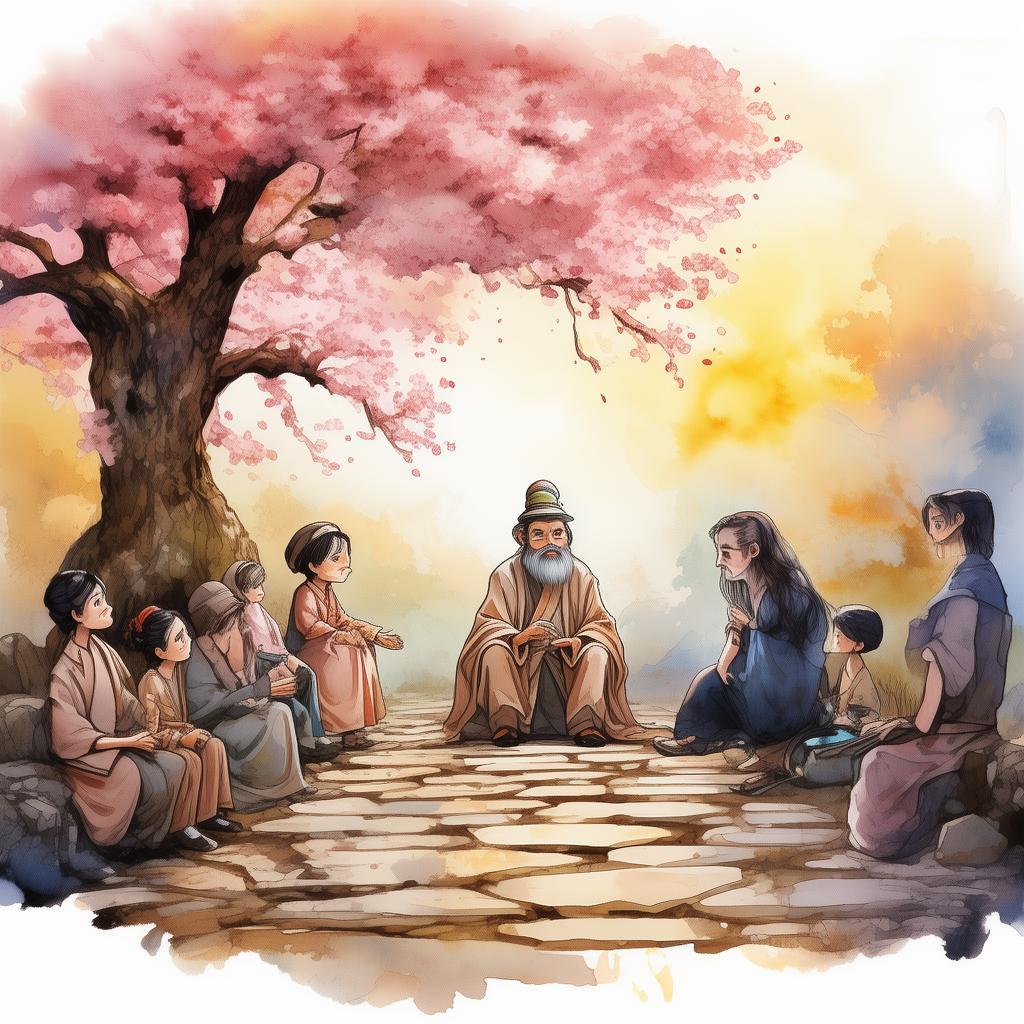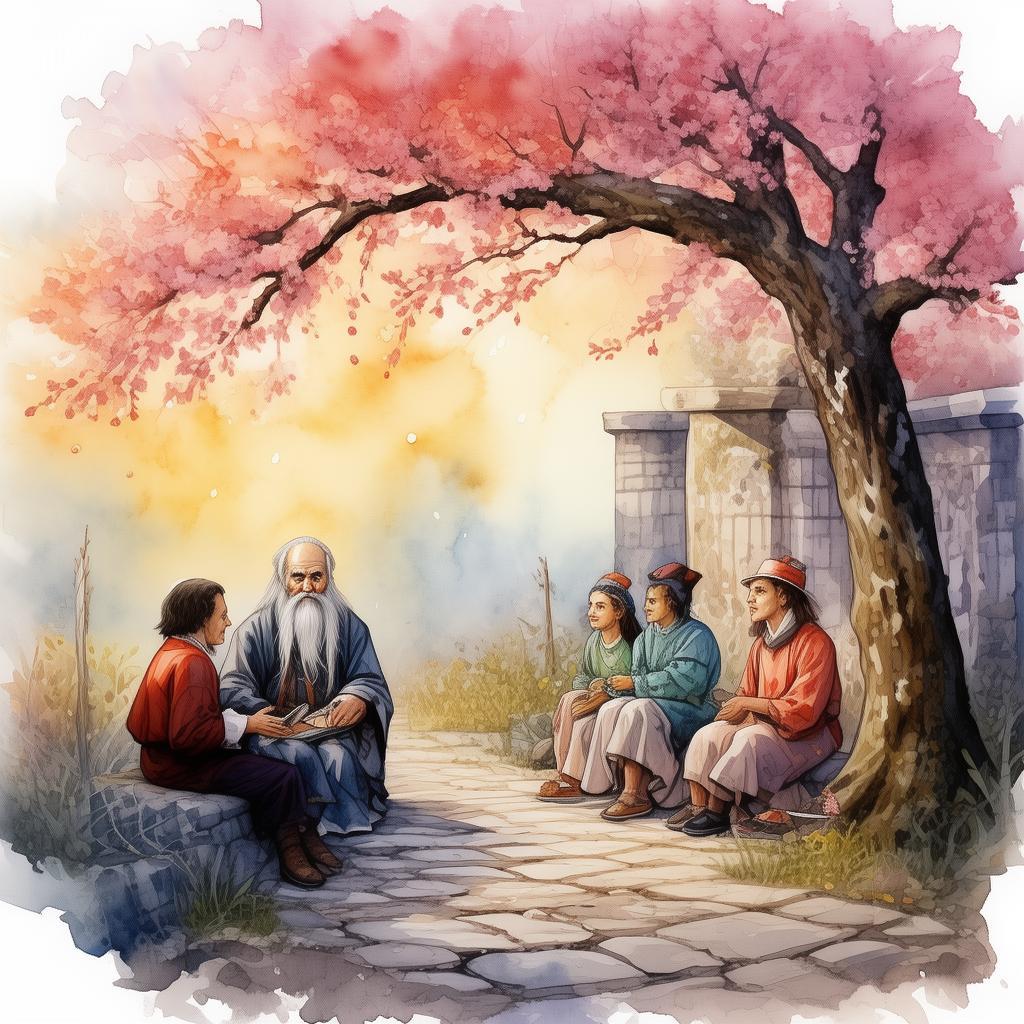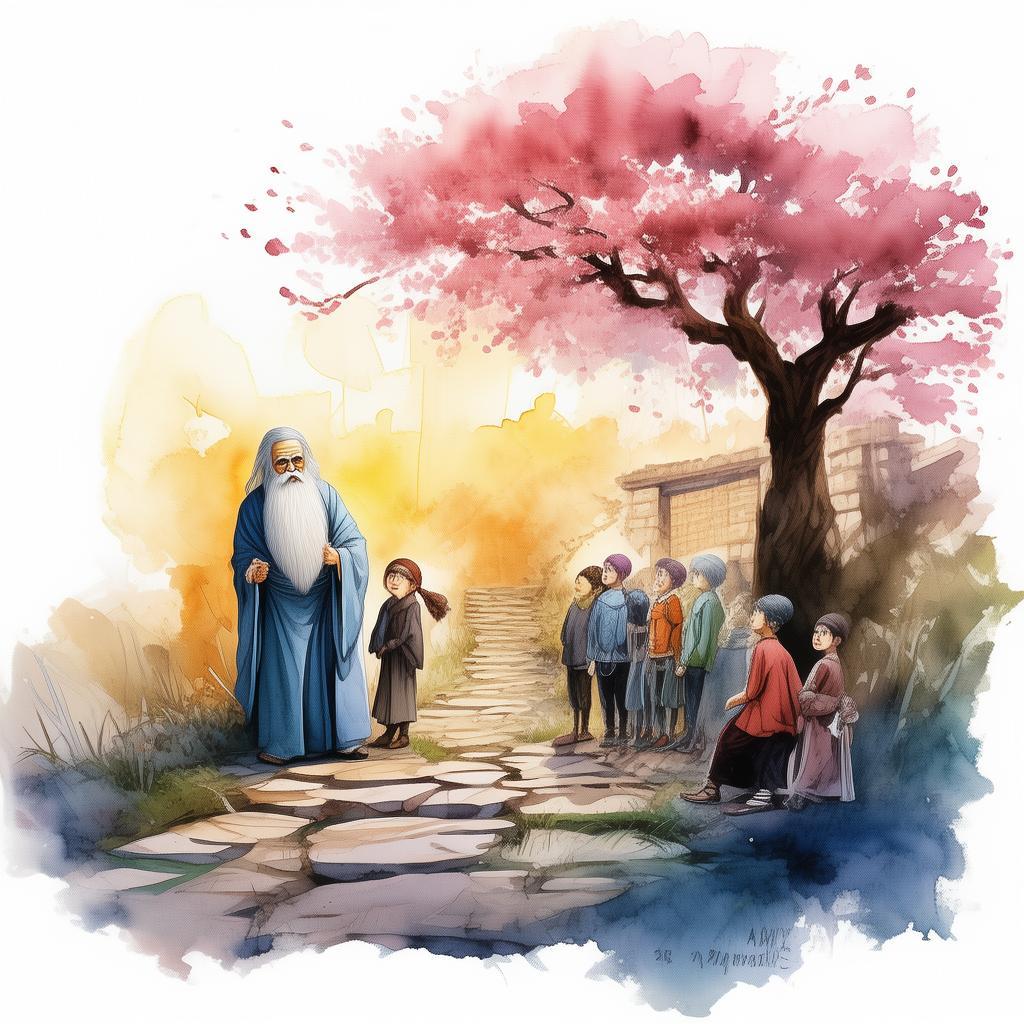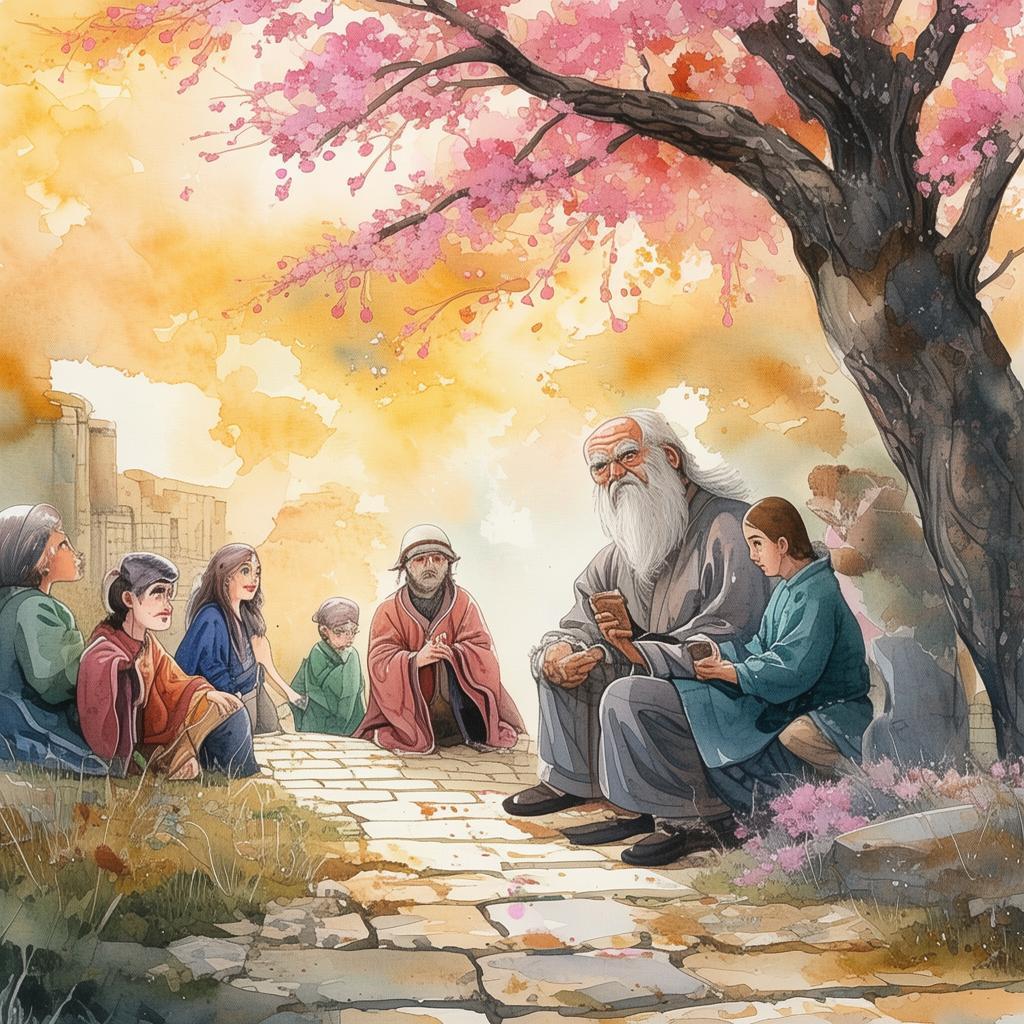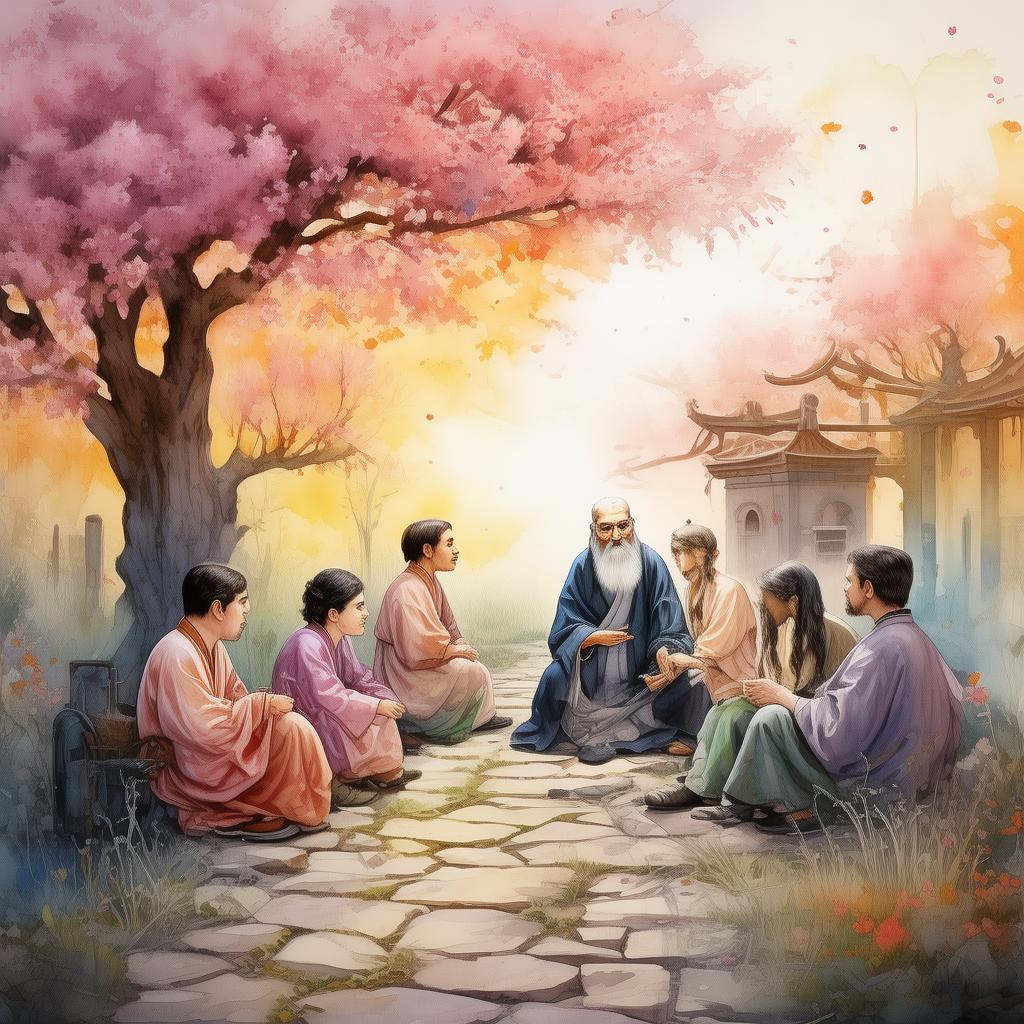The Zen Chess Epic: The Match That Brought Two Worlds Together
In the tranquil mountains of ancient China, there lived a revered Zen master named Wu Tang, whose wisdom was as vast as the sky and whose name was spoken in awe by all who knew of him. His expertise in the game of chess was unparalleled, and he had long been sought after by scholars and kings for his teachings on both the game and the art of living.
On the other side of the world, in the bustling city of Byzantium, there was a man named Basil, a master of the European chess tradition. Basil had traveled far and wide, challenging and defeating all who dared to play against him. His skill was legendary, and he was known as the "Chess Conqueror."
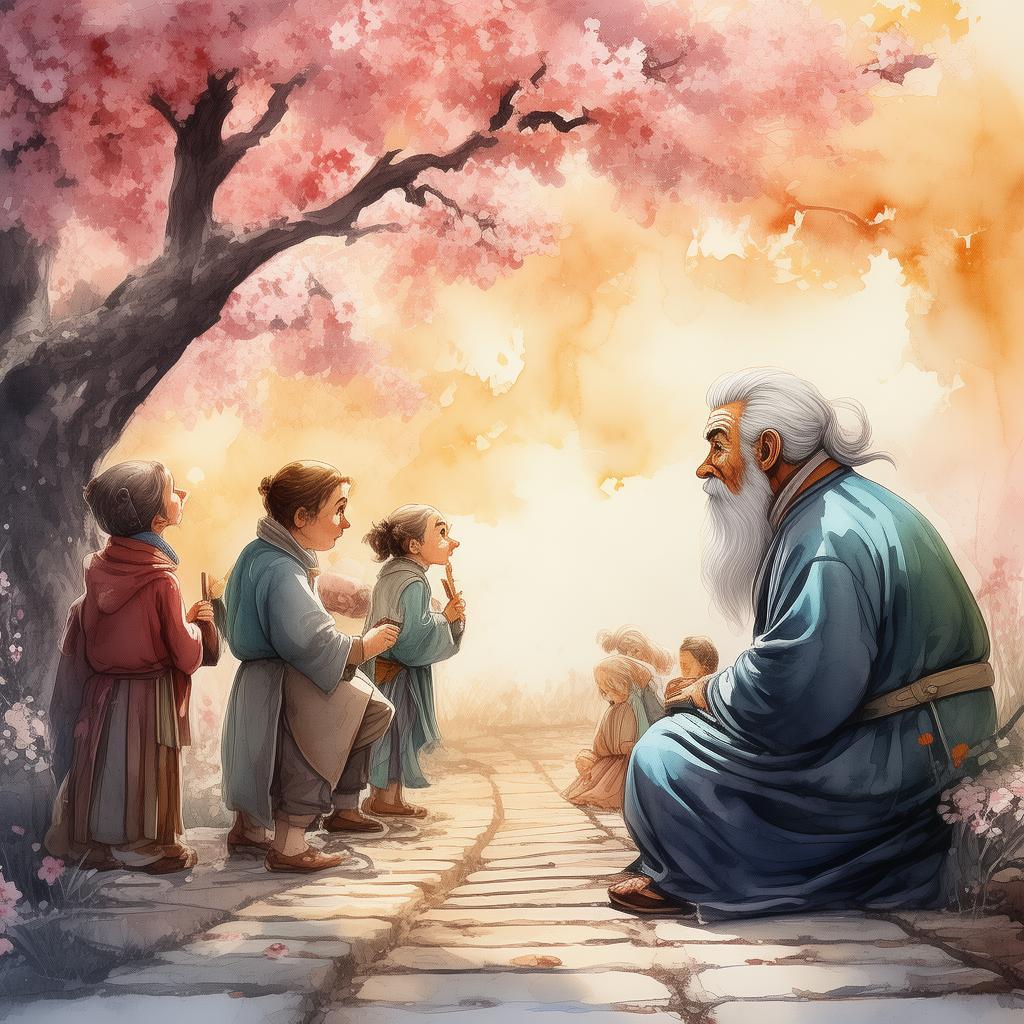
The two men were separated by language, culture, and geography, but fate had a peculiar sense of humor. A mysterious letter arrived at Wu Tang's Zen monastery, written in a script that he had never seen before. The letter spoke of Basil, his prowess in chess, and a challenge to match their skills in a game that would not only determine the greatest chess master of the era but also bridge the gap between two worlds.
Wu Tang, ever the philosopher, saw this as a chance to understand Basil's world and to impart his own wisdom through the universal language of chess. He decided to accept the challenge, and thus the stage was set for a match that would become legendary.
The match was to be held in a grand hall, where the walls were adorned with tapestries of ancient battles and the air was thick with the scent of incense. The grandmasters took their seats, the pieces were placed on the board, and the match began.
The game was a spectacle, a dance of intellect and intuition. Wu Tang's moves were fluid and graceful, each one a lesson in patience and strategy. Basil's moves were bold and aggressive, a testament to his confidence and desire for dominance. The spectators watched in awe, their eyes following the pieces as they moved across the board.
As the game progressed, Wu Tang and Basil began to communicate in a language that transcended words. They shared smiles, nods, and even occasional looks of respect. It was as if the game itself was speaking to them, revealing its secrets and mysteries.
The game reached a critical juncture. Wu Tang had Basil in a seemingly unwinnable position, but Basil found a move that surprised everyone. It was a move that was both daring and brilliant, a testament to his deep understanding of the game and its nuances.
Wu Tang, instead of celebrating Basil's victory, rose from his seat and bowed deeply. "You have won, Master Basil," he said, his voice filled with respect and admiration. "You have not only outplayed me on the board but also on the path of enlightenment."
Basil, taken aback, could only nod. "I am humbled, Master Wu Tang. I never expected such a profound lesson from a game."
From that day forward, the tale of the Zen Chess Epic spread across the world. It was a story not only of the match between two great chess masters but also of the match between two cultures. Wu Tang and Basil had not only played a game of chess; they had played a game of life, revealing the universal truths that lie within the game itself.
The Zen Chess Epic: The Match That Brought Two Worlds Together became a symbol of the power of cultural exchange and the enduring nature of wisdom. It taught that even in the face of difference, there is always a common thread that can bind us together, and that the game of chess, with its infinite possibilities, was a perfect metaphor for the human journey.
In the end, it was not just the match that brought two worlds together, but the spirit of understanding and respect that the match had inspired. Wu Tang and Basil had not only become friends but also spiritual brothers, united by the universal language of chess and the wisdom it held.
✨ Original Statement ✨
All articles published on this website (including but not limited to text, images, videos, and other content) are original or authorized for reposting and are protected by relevant laws. Without the explicit written permission of this website, no individual or organization may copy, modify, repost, or use the content for commercial purposes.
If you need to quote or cooperate, please contact this site for authorization. We reserve the right to pursue legal responsibility for any unauthorized use.
Hereby declared.
